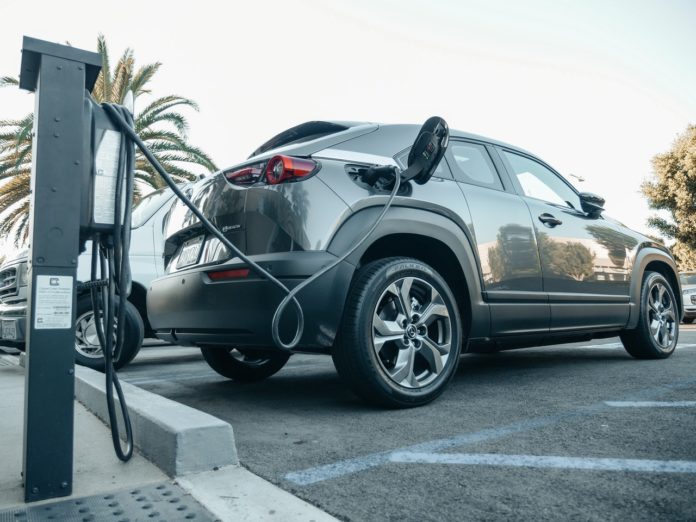EVs are all the rage these days but can buying one really change your life for the better?
Obviously, buying a car isn’t supposed to be a life-changing event like, say, getting married or deciding to get a child. No, of course not.
When talking about getting a new car, we usually think about its durability and the maintenance costs. Well, in the case of some EVs (see more below), there is also the cost of fuel to take into the calculation. Electric cars can actually prove to be way cheaper in the long run and are certain to become even more sustainable because battery technologies keep getting better. That, and the availability of EV chargers can make your life easier on the whole.
First, let’s take a look at EV types available.
BEVs, PHEVs and HEVs
There are three types of EVs, as follows:
Battery Electric Vehicles (BEVs) are powered solely by an electric battery, which is to say that they have no gas-engine parts altogether. Most BEVs are capable of fast charging and L2 charging, so make sure to compare the offer before deciding on a single model.
Hybrid Electric Vehicles (HEVs) are low-emission vehicles that use an electric motor to assist gas-powered engines. All energy is fueled by gasoline and they cannot be charged with EVgo.
Plug-in Hybrid Electric Vehicles (PHEVs) are powered by a larger battery and electric motor. PHEVs have both a gas tank and a charging port. They can be charged by using L2 chargers.
As you can see, there is a little something for everyone’s taste, so do your calculation before picking one type.
Now onto the benefits of EVs.
1. EVs Will Change the Way You Drive
Depending on the type and model of the EV you choose, you’ll need to keep into account how long the battery will last. That is to say, you may need to plan your routes differently depending on the availability of EV chargers.
Some cars have better ranges than others (e.g., a Tesla or a Chevy Bolt), but you should still make certain that you charge the battery up for the night.
What is a benefit here?
Let’s just say that a full EV battery is equivalent to having a full tank every day without having to pay a visit to a gas station.
Also Read:
2. EVs Will Make You Clearly Aware of the Environment
Much has been said about the benefits of electric cars in terms of providing a positive impact on the environment, but no matter how many times you hear it, it doesn’t make it any less true.
Once you have your EV, you’ll actually recognize the impact your decision is making and it will make you feel better. It’s like starting a new workout routine and keeping up over time and beginning to see the benefits over time.
In that sense, buying an EV can count as a life-changing event, if you like.
3. EVs Will Save You Loads of Money
This one particular benefit seems to be the most influential because humans are greedy creatures. Yes, EVs can save you lots of money, both short-term and long-term.
Let’s see how.
Incentives for Buying EVs
There are two types of incentives for buying an EV: federal tax credits ($2,500 to $7,500) and
state and utility incentives available.
Federal Tax Credits
Internal Revenue Code Section 30D (IRC 30D) provides a credit for plug-in electric drive motor vehicles, which is to say — passenger vehicles and light trucks.
For vehicles purchased after December 31, 2009, the credit stands at $2,500 plus, for a vehicle which draws propulsion energy from a battery with at least 5 kWh of capacity, $417, plus an additional $417 for each kWh of battery capacity in excess of 5 kWh. The maximum amount of the credit is $7,500.
The credit is applicable only to the first 200,000 vehicles a manufacturer sells (calculated on a cumulative basis for overall sales after December 31, 2009). FYI, Tesla and General Motors EVs have already surpassed that limit.
EVs available for tax credits include: AMP EVs, Audi EVs, Bentle’s 2020–21 Bentayga Hybrid, BMW EVs, BYD Motor’ 2012–17 e6 Electric Vehicle, BYD Motors’ 2017–22 Pacifica Plug-in Hybrid, CODA Automotive 2010, 2012 CODA Sedan, ELMS’ 2022 ELMS Urban Delivery, Electric Mobile Cars EVs, Ferrari’s 2020–21 SF90 Stradale, Fiat’s 2013–19 500e, Fisker’s 2012 Karma Sedan, Ford EVs, Ford/Azure Dynamics’ 2011–12 Transit Connect EV, Honda EVs, Hyundai EVs, Jaguar EVs, Jeep EVs, Kandi EVs, Karma’s 2018–20 Karma Revero, Kia EVs, Lexus’ 2022 NX Plug-In Hybrid, Lincoln EVs, Lucid EVs, Mazda’s 2022 MX-30, McLaren’s 2022 Artura, Mercedes-Benz EVs, MINI EVs, Mitsubishi EVs, Nissan’s 2011–22 Leaf, Polestar Automotive EVs, Porsche EVs, Rivian EVs, Smart USA EVs, Subaru’s 2019–21 Crosstrek Hybrid, Think’s 2011 Think City EV, Toyota EVs, VIA Motors EVs, Volkswagen EVs, Volvo EVs, Wheego’s 2011 LiFe, Zenith Motors EVs.
To be eligible for the credit, the EV must meet the following criteria:
- Must be made by a manufacturer
- Count as a motor vehicle for purposes of Title II of the Clean Air Act
- Must have a GVWR of up to 14,000 lbs
- Must be propelled by an electric motor which draws electricity from a battery which:
- Has a capacity of at least 4 kilowatt hours
- Can be recharged from an external source of electricity
- Must be a new vehicle
- Is acquired for use/lease by the taxpayer, and is not to be re-sold (the credit is available to the original buyer only)
- Is used mostly in the U.S.
- Must be placed in service during or after the 2010 calendar year
State and Utility Incentives
Various states offer incentives for EVs. Look into the benefits in the states that have joined the National Electric Highway Coalition (NEHC). NEHC is committed to creating a network of direct current fast (DC Fast) charging stations that connect major highway systems from the Atlantic Coast to the Pacific Coast of the U.S. NEHC utility members provide fast charging deployment plans that enable long distance EV travel, avoiding duplication among coalition utilities, and complement existing corridor DC fast charging sites.
4. EVs Help Fuel Economy
HEVs have lower fuel costs than similar gas-powered vehicles. All types of EVs have electric-drive components, which means even the types that use gas use lower quantities [郎1] than conventional vehicles. EVS rely on electric power, meaning their fuel economy is measured differently: in miles per gallon of gasoline-equivalent (MPGe) and kilowatt-hours (kWh) per 100 miles.
The fuel depends on the duty cycle and the load carried, but EVs generally maintain a strong fuel-to-cost advantage over conventional vehicles.
5. EV Batteries Are Long-Lasting
The new generation batteries in plug-in EVs have extended life cycle. A great many manufacturers offer 8-year/100,000-mile battery warranties. The majority of the batteries currently in use last 12 to 15 years in moderate climates and 8 to 12 years in extreme climates. With the technology ever-evolving, the battery life cycle is only predicted to increase.
However, make sure to check with your dealer whether extended warranty programs are available for your EV.
Last But Not Least
Keep in mind that as technology advances, EVs will be becoming cheaper, batteries more long lasting, and maintenance costs will keep decreasing.
As things stand now, EVs are likely to replace conventional vehicles altogether in the future, so now is the perfect moment to consider buying an EV instead of a gas-powered vehicle.




